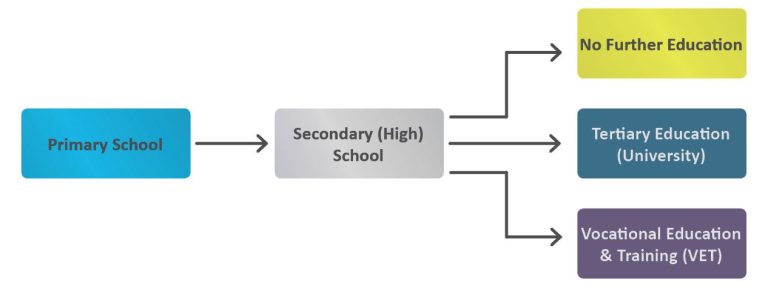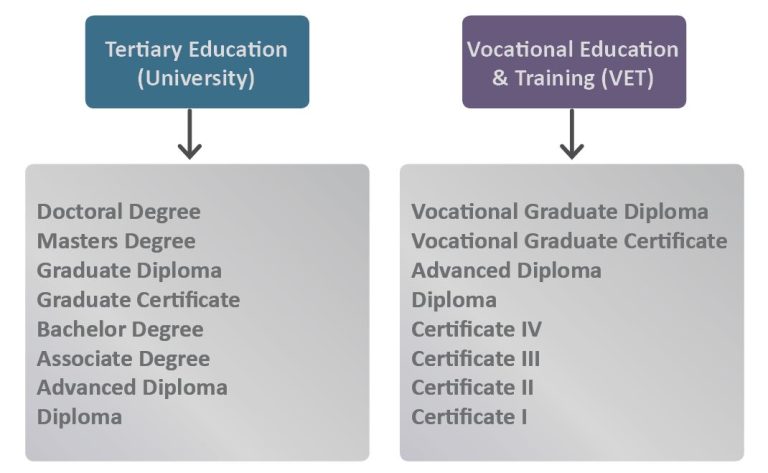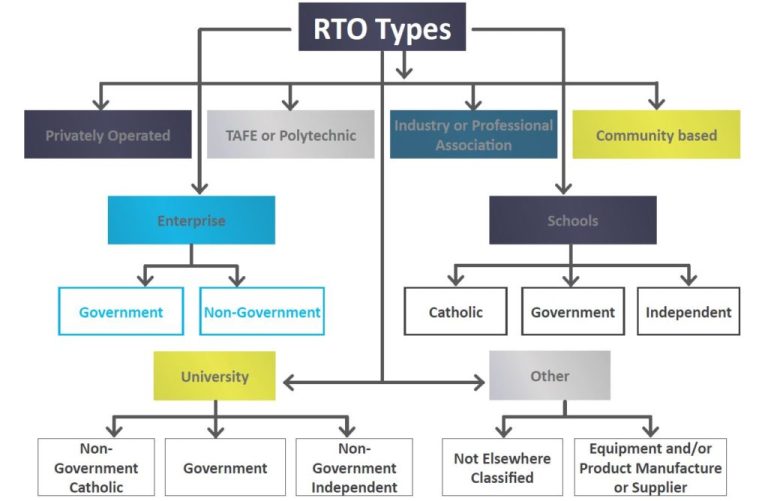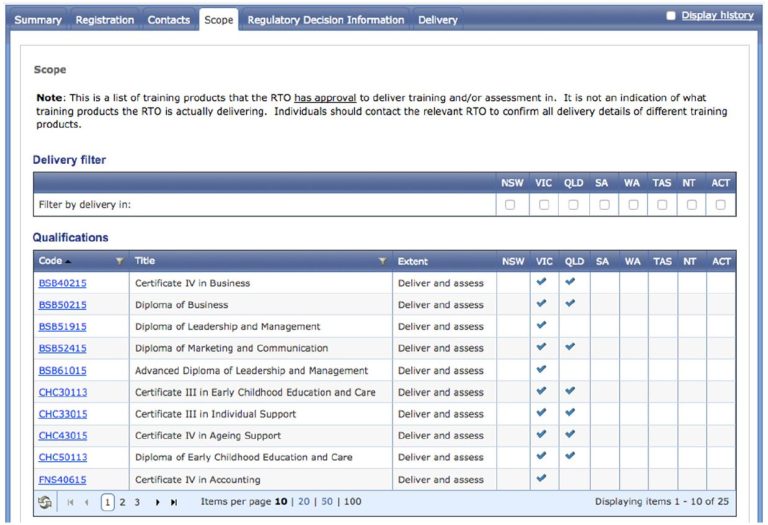RTO 101 - What is RTO and How it works in Australia?
If you’re interested in vocational education and training (VET) in Australia, you may have come across the term RTO 101. RTO stands for Registered Training Organization, and it refers to training providers registered by the Australian Skills Quality Authority (ASQA).
These organizations deliver VET services to students, which can lead to nationally recognized qualifications or statements of attainment.
In Australia, VET training is an important part of the education system. Students can take VET courses in addition to or instead of traditional academic courses.
After finishing high school, students have three options: they can pursue further academic studies, start working, or enroll in a VET course to learn a specific skill or trade.
RTOs offer a range of VET courses, from basic skills training to advanced diplomas. These courses are designed to provide students with practical, hands-on experience and prepare them for the workforce.
So, if you’re looking to gain new skills or advance your career, consider enrolling in a VET course offered by an RTO. With their focus on practical training and nationally recognized qualifications, RTOs can help you achieve your career goals.
- No further education – you can chose to leave school and have no further education or training.
- Tertiary education – you can apply and where successful, complete tertiary level studies to achieve a degree etc.
- Vocation Education & Training (VET) – you can choose to further your education or expand your skills. Side by side, knowledge within a particular sector of an industry.

RTO 101: Difference between Tertiary and VET Education

We generally all know that, if successful, you obtain a Bachelor’s degree from a University. You can go on to complete higher levels of study as well. However, unless you work or have studied in the VET sector, most people are unaware of this sector of education or don’t really understand it.
Deliver nationally recognized training packages
The VET sector offers vocational and technical courses aimed at preparing students for immediate employment. Students gain practical skills, knowledge, and attitudes related to specific occupations.
Training is available at different qualification levels, ranging from Certificate I to Vocational Graduate Diploma. Training packages developed by industries and industry bodies provide nationally recognized training.
The VET sector in Australia has a history dating back over 150 years, with TAFEs providing technical education. Private providers emerged in the late 19th century, and the sector experienced major growth with the establishment of the AQF in 1995.
The introduction of national training packages in 1996. Without these milestones, the VET sector would not have had the growth it has experienced.
Despite this growth, some individuals in the VET sector may have a different perspective on the above statement due to their involvement in the industry’s development.
Skills Service Organizations (SSOs) and Industry Reference Committees (IRCs)
However simply put, prior to these milestones, a person could study and receive a Certificate III, let’s say in Childcare in NSW. Then move to QLD, where they would have found that the qualification would have been of no use to them in obtaining work in the childcare industry.
Why, because the childcare center’s would not have recognised the qualification from a different State. To obtain a job in childcare, you needed to have a qualification.
It isn’t that the childcare centre themselves didn’t want to recognize it, it is their Industry and Industry bodies. The State or other legislation for that industry that wouldn’t allow them to recognize it.
Additionally, Queensland’s VET training providers would not have been able to recognize it, so the person would have had to retake the course.
As part of further Australian VET reforms, in January 2016 a new model for developing and maintaining training packages came into effect. As a result of the change, industry plays a more significant role in developing training packages.
In order to develop training packages in line with current industry practices and meet employer expectations. The Australian Industry and Skills Committee (AISC) works closely with Skills Service Organizations (SSOs) and Industry Reference Committees (IRCs).
Now that we have covered a very basic version of what VET training is? We can start to look more closely at what an RTO is.
Registered Training Organisations (RTOs) hold the only accreditation to deliver vocational education and training qualifications and courses. The organization provides quality-assured and nationally recognized training and qualifications.
RTOs include private and public education providers. The RTO 101 types as listed on www.training.gov.au include:

RTO 101- What is an RTO and do you know RTOs have scopes?
Just because you are an RTO does not mean you can deliver training in any and all training package qualifications and courses etc.
Each RTO 101 will have a Scope (a specific set of qualifications, courses, unit of competencies and/or skill sets) that they are registered to deliver training in across specific national training packages.
Also, as part of their registration, an RTO can only deliver the training at a specific state or territory level unless they have been registered to deliver nationally. You can always see for an RTO what their registered scope is by going to www.training.gov.au.
Once you have found the RTO go to the Scope section. It will display a table similar to the one below:

Local/Domestic Student
Overseas Student in Australia on a Student Visa
All RTOs can train the student type of Local/Domestic (typically an Australian Citizen or someone holding an Australia Permanent Resident (PR) visa). However only certain RTOs that have been registered as a CRICOS provider can recruit.
Enrol and deliver training to overseas students studying or intending to study in Australia on Student Visas.
CRICOS stands for Commonwealth Register of Institutions and Courses for Overseas Students. This register lists all Australian education providers, approved to offer courses to these overseas students. For each education provider on the register, it will list what courses they offer.
Important Note
It is important to note that a CRICOS registered provider is NOT just an RTO 101. They can be education providers from different sectors of the Australian Education Industry such as Schools (both public and private), Universities, TAFEs etc.
They can also be an ELICOS (English Language Intensive Courses for Overseas Students) provider.
Although the Sales & Marketing and Academics (training delivery and assessment) departments should be the most critical departments that RTOs focus on, unfortunately, that isn’t the case.
Over the last 8+ years, as all the reform and legislation that has been introduced in this sector. It was meant to benefit and improve the sector.
However, there has been one major impact that many RTOs not only see as negative but also have struggled with, which is compliance management.
In any business, private or public (government), there is always one or many forms of compliance (rules and regulations) that it must adhere to.
Compliance is critical across all businesses in Australia. There is different compliance requirements that, let’s say are generic, all businesses will have to comply with them no matter what industry they are in. Some examples include:
- ATO compliance
- Payroll compliance
- ASIC requirements
- Insurance requirements
For businesses in specific Industries, they would then have another level of Industry specific compliance requirements to adhere to and manage. This definitely applies to the RTO 101 Industry.
To name just a few areas, RTOs must comply with all components of the Vocation Education and Training (VET) Quality Framework that includes:
- Standards for Registered Training Organizations (RTOs) 2015
- Australian Qualifications Framework
- Fit and Proper Person Requirements
- Financial Viability Risk Assessment Requirements 2011
- Data Provision Requirements 2012.
Importance of Compliance Management for RTO 101
Compliance management is now a significant part of RTOs’ business. They either have in-house compliance managers or outsource it, but it remains their direct responsibility.
The RTO owners and contacts listed on www.training.gov.au must ensure that they meet their compliance requirements.
It is important to note that this is a simple resource to help explain to people who are new to RTO 101 what an RTO is. It by no means is an in-depth resource for technical or legal requirements or information. There are things left out deliberately, so as not to confuse the reader.

